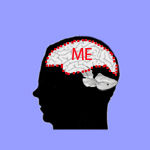 In a new paper, “We Are Not Human Beings,” Derek Parfit argues that persons are identically their conscious, thinking parts, which he identifies as their cerebrums. This is a significant departure from the position he defended in Reasons and Persons, that personal identity consists in non-branching psychological continuity and connectedness with any cause:
In a new paper, “We Are Not Human Beings,” Derek Parfit argues that persons are identically their conscious, thinking parts, which he identifies as their cerebrums. This is a significant departure from the position he defended in Reasons and Persons, that personal identity consists in non-branching psychological continuity and connectedness with any cause:
Our identity over time just involves (a) Relation R—psychological connectedness and/or psychological continuity, either with the normal cause or with any cause, provided (b) that there is no different person who is R-related to us as we once were. [Parfit, 1984, p 216]
I call Parfit’s new view a “retreat” because it is a move away from the radical insights about what we are which illuminated Reasons and Persons, to a ‘conservative’ account of persons as physical substances. I find the move puzzling, because I can’t see that Parfit is compelled to make it, and disappointing, because it raises once again the fog of mysteries about persons that looked well on their way to being dispelled.
Parfit’s claim that persons are their cerebrums has as a direct consequence that persons cannot survive information-based teleportation. If I plan to be teleported to Mars, I should accept that my replica on Mars will not be me, because my replica’s cerebrum is numerically different from my cerebrum. The cerebrum is a body part, which, like any other ordinary material object, ceases to exist when it is destroyed. Its replica on Mars is a different cerebrum—hence, if Parfit is right, a different person.
Parfit has long thought that survival—a person’s continued existence—is different from what matters in survival. His new view on what persons are could perhaps coexist with his earlier position that information-based teleportation preserves everything that matters in survival. But such coexistence, I will argue, is an uneasy truce between fundamentally warring ideas. An alternative account of what persons are—informational entities—is a better fit to Parfit’s intuition (which I endorse) that nothing important need be lost in teleportation of persons.
“Why We Are Not Human Beings” is Parfit’s response to animalism—the view put forward by Eric Olson and others that persons are identical to animals, or biological organisms. (In the animalist literature, “human being” is used as a synonym for “human animal.”) In this review of Parfit’s paper, I raise the following points:
- The arguments Parfit brings to bear against animalism rely on an intuition that has equal force against the paper’s conclusion that persons are their cerebrums.
- The claim that persons are their brains was strongly rejected in Reasons and Persons for reasons that supported a central argument of that book. If we were identical to our cerebrums, Parfit’s main argument against the Self-Interest Theory would be undercut in the same way that it would be if we were identical to our (whole) brains.
- The claim that we are our cerebrums weakens Parfit’s argument in Reasons and Persons that “ordinary survival is about as bad as being destroyed and having a Replica.” If I am my cerebrum, it is hard to believe that destruction of my cerebrum is not especially bad for me, even if a replica of my cerebrum is manufactured in its stead. Continue reading “Parfit’s Retreat: “We Are Not Human Beings””
 When people ask what the Phantom Self is about and I have to come up with an elevator speech of a minute or less, I’ve started saying something along the lines of, “There is no fundamental difference between your relationship to your future self and your relationships to other people.” This sometimes strikes a chord, making people want to hear more. It’s better than leading with teleportation, although teleportation is not bad at parties, where people take it as an invitation to play; they light up and start recalling the Hollywood fantasies they enjoyed in their misspent youth, the more outrageous the better. It’s way better than starting off with the idea that we are informational entities, to which people respond as though they’d stepped in something squishy.
When people ask what the Phantom Self is about and I have to come up with an elevator speech of a minute or less, I’ve started saying something along the lines of, “There is no fundamental difference between your relationship to your future self and your relationships to other people.” This sometimes strikes a chord, making people want to hear more. It’s better than leading with teleportation, although teleportation is not bad at parties, where people take it as an invitation to play; they light up and start recalling the Hollywood fantasies they enjoyed in their misspent youth, the more outrageous the better. It’s way better than starting off with the idea that we are informational entities, to which people respond as though they’d stepped in something squishy.








